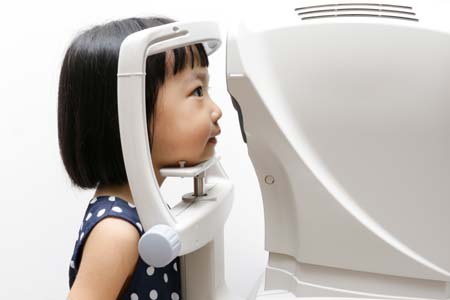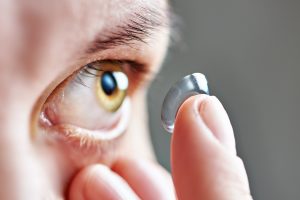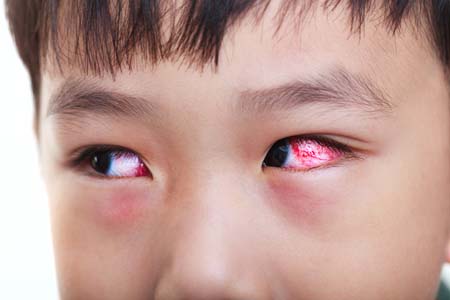Bee Cave Eyecare Services

Bee Cave Comprehensive Eye Exam
Dr. Barit recommends an eye exam annually for everyone. They are important for your health because it can detect vision problems, eye diseases and general health problems. Dr. Barit performs a series of evaluations including visual acuity, glaucoma, cataracts and macular degeneration testing. In addition an ocular health screening is performed for those with diabetes, high blood pressure, medications and health changes such as pregnancy. In most cases, retinal photography is performed in lieu of dilation so that Dr. Barit can see the health of your retina. He will also determine your prescription for glasses.

Pediatric Eye Exam
Children are extremely adaptable to their environments and they may adapt to their vision problems. Dr. Barit encourages a Pediatric Eye Exam annually for children starting at age two. Even if they do not know their alphabet, he can still perform visual acuity testing as well as eye disease screenings. Although they may receive a vision screening at school, which tests distance vision, an eye exam is recommended for far and near vision testing and other ocular health evaluations. Your child may need vision correction if they consistently sit close to the television, hold a book or tablet too close, squint or turn their head to see better, have sensitivity to light, suffer headaches, rub their eyes, avoid activities or state that their eyes hurt. Many of these common refractive errors may be easily corrected with glasses or contacts.

Contact Lens Fittings
Following a Comprehensive Eye Exam, you may elect a Contact Lens Fitting that determines your contact lens prescription. Dr. Barit will evaluate the shape of your eye, lifestyle and overall health in establishing which lens best suits your needs. Dr. Barit has extensive experience in all types of contacts including soft lens, dailies, toric, gas permeable and mulitfocals. He will give you samples to try that day then set a follow up appointment. At your follow up, he may make any necessary adjustments to ensure that you achieve maximum comfort and acuity with your contacts.

Contact Lens Training
Children, teens and adults may be using contacts for the first time. Dr. Barit will educate you in how to care for and maintain your contact lenses. He will assist you with contact lens insertion and removal, give you trials for one week, and set a follow up appointment to gauge your comfort and progress.

LASIK Comanagement with Dr. Steven Dell, M.D.
LASIK, stands for “laser-assisted in situ keratomileusis.”LASIK reshapes the cornea using a laser to correct nearsightedness, farsightedness, and astigmatism. Dr. Barit has a decade of experience comanaging LASIK with Dr. Dell and personally had LASIK in 2013. Dr. Barit performs the pre-operative evaluation and post-operative care. If you would like to see if you are a candidate for LASIK, or other refractive procedures, schedule your appointment for a free consultation.
Medical Treatments

Ocular Allergy Care
If you suffer from allergies, you may also be susceptible to Ocular Allergies or Allergic Conjunctivitis, It can affect your eyes, making them red, itchy, burning, and watery, and cause swollen eyelids. Seasonal allergies are triggered by allergens such as pollen as well as spores from molds while Perennial allergies are most commonly caused by dust mites, pet dander, perfumes, smoke, chlorine, air pollution, cosmetics. If your symptoms are not relieved by a cold compress, Dr. Barit can evaluate further and potentially prescribe eye drops for both short and long term relief.

>
Dry Eye Care
If you have symptoms of dryness, pain, itching, burning sensations, watering eyes, or swelling, you may be experiencing dry eye syndrome. This can be caused by advanced age, contact lens wear, certain medications, eye diseases, other medical conditions, environmental factors or reduced tear production due to inflammation.. Dr. Barit can assess the severity, minimize the discomfort and offer a treatment plan. In some cases eye drops may be prescribed and others may need punctual plugs.

Pink Eye Care
If you are experiencing redness or white discharge from your eye, you may have Conjunctivitis, also referred to as Pink Eye. This is most often caused by a virus or by a bacterial infection, although allergies, chemical agents, and underlying diseases may also be the cause. It may be contagious, so it is important to wash hands to prevent the spread of infection. Dr. Barit can treat and prescribe an antiviral medication to help you feel more comfortable as the infection heals, typically within 5-7 days.

Foreign Body Removal and Corneal Abrasion Care
Eye injuries may occur by accidents, gardening, sporting events, chemical exposure and more. It is highly recommended that you seek medical attention as soon as possible, within a 24 hour period. If you are experiencing sharp pains, believe that your eye has been scratched or if debris may have gotten into your eye, Dr. Barit can assist you, even after business hours.
Common Vision Problems
Presbyopia

Presbyopia usually occurs beginning at around age 40, you may experience eyestrain and blurred near vision when reading, looking at your phone or working at the computer. Presbyopia is the age related onset of blurred near vision and it happens to everyone. Presbyopia occurs whether you are nearsighted, farsighted, astigmatic, or have never worn a correction. Progressive lenses are the most common correction, multifocal contacts, and reading glasses are also alternatives.
Astigmatism

Astigmatism is most commonly caused by an irregular or “football” shaped cornea or lens. This prevents light from focusing properly on the retina. Although small amounts of astigmatism may go unnoticed, it can cause blurriness in both far and near vision. It may also cause a halo effect surrounding lights at night. Astigmatism may also accompany farsightedness or nearsightedness and can be corrected with glasses and even contact lenses.
Myopia

Nearsightedness (Myopia) is clear vision for objects that are near to you, but difficulty seeing objects that are far away. The majority of people wearing glasses are nearsighted. Nearsightedness can cause squinting and eyestrain when viewing distant objects, leading to fatigue and headaches. Most people develop nearsightedness in childhood and stabilize as young adults. Correction can be in the form of glasses, contact lenses, or both.
Hyperopia

Farsightedness (Hyperopia) is clear vision for objects that are far away, but difficulty seeing objects that are near. Depending on the severity, they are likely to have trouble seeing objects up close. Farsightedness can cause eyestrain and headaches while reading or working on computers. Glasses or contacts can correct farsightedness and may be prescribed for full or part-time wear.